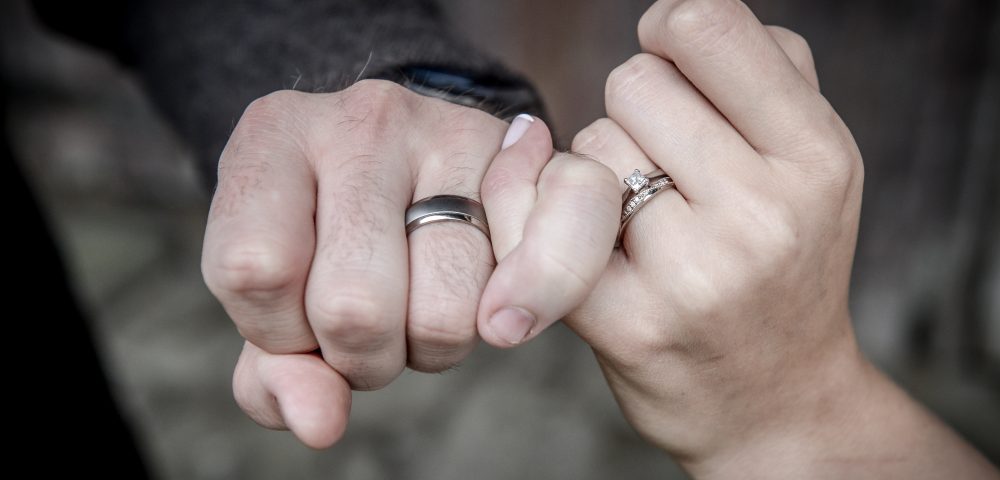Our Marriage Vows Are More Meaningful Because of Huntington’s
Written by |

“In sickness and in health, until death do us part.” These words, which were part of our marriage vows, are a somber reminder of our mortality. But who wants to think about sickness and death on the happiest day of your life?
In this column, I want to focus on the finality of that promise to stay with a spouse until either of you dies. The presence of the father of my wife, Jill, at our wedding served as a vivid reminder of the meaning behind those words. He had Huntington’s disease and died three years later.
Jill was close with her dad, and she helped her mother take care of him. He had trouble swallowing and would choke when trying to eat solid food because of a disorder called dysphagia, which is common in those with Huntington’s. Her dad was losing weight, so Jill would make large pans of homemade potatoes and yams to which she would add marshmallow fluff, weight gain supplements, and sticks of butter. I could hear arteries being blocked as it cooked. But the important thing was that each bite represented many calories.
It was a strange concept to process. Most people try to avoid consuming excess calories. Although Jill’s dad was consuming calorie-laden food, he continued to lose weight. He eventually had surgery to have a feeding tube fitted.
Over time, her dad’s condition worsened, and he began experiencing neurological symptoms. Jill was always patient with him, and nothing seemed to faze her. I asked her how she did it day in and day out. Her response was this: My dad is a good man, and he didn’t choose this — this chose him. He didn’t deserve what was happening to him, and she refused to make him feel bad about something he couldn’t control. She also realized that what he was going through might be her fate someday. She showed him dignity and respect because that is how she would want to be treated.
I found it incredible that no matter how difficult it was for him, he never complained.
At my wedding, I realized that he couldn’t eat when the waitress offered him food. He looked at her with a sad expression. Every day I watch Jill enjoy food, knowing that there’s a possibility that her face will eventually have a similarly sorrowful look. I don’t want to watch her wither away before my eyes. I want her to be able to choose the food she wants and not just what she needs.
But if — or rather, when — the time comes that Jill cannot eat regular food, I plan to make her meals that she will enjoy. I will work hard to be the best caregiver I can for her because I’m inspired by how she took care of her father.
I have made a vow to stick with her through sickness, and I will go to the ends of the earth to take care of her.
Until death.
***
Note: Huntington’s Disease News is strictly a news and information website about the disease. It does not provide medical advice, diagnosis, or treatment. This content is not intended to be a substitute for professional medical advice, diagnosis, or treatment. Always seek the advice of your physician or other qualified health provider with any questions you may have regarding a medical condition. Never disregard professional medical advice or delay in seeking it because of something you have read on this website. The opinions expressed in this column are not those of Huntington’s Disease News, or its parent company, Bionews Services, and are intended to spark discussion about issues pertaining to Huntington’s disease.






Leave a comment
Fill in the required fields to post. Your email address will not be published.